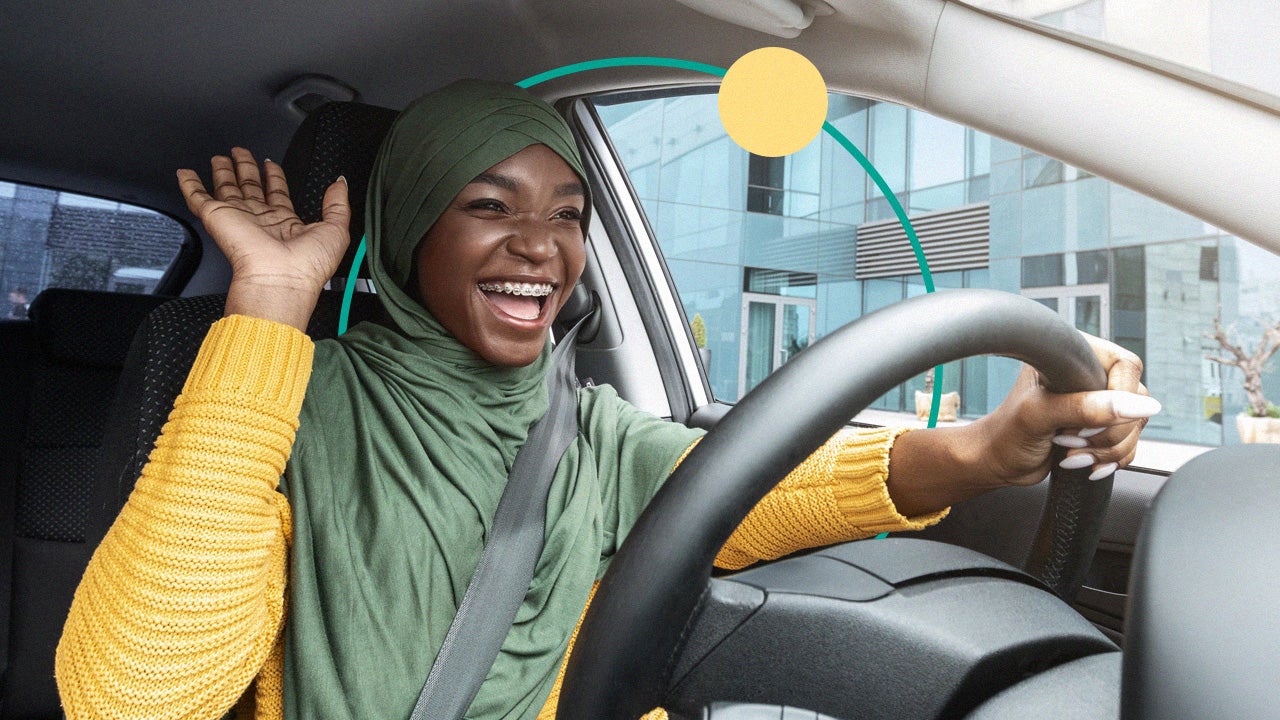Second-chance car loans: What they are and how to get one

Key takeaways
- A second-chance auto loan is an auto loan that caters to borrowers with subprime or deep subprime credit.
- Second-chance car loans come with higher interest rates that can inflate the price of a car loan by hundreds of dollars.
- There are more affordable alternatives to second-chance auto loans, but these loans can put you in a car more quickly if it’s essential for you to have a vehicle.
A lower credit score can make getting approved for competitive auto loan rates challenging, but you may still be eligible for financing through a second-chance auto loan. Also referred to as subprime auto loans, these are designed for borrowers in the subprime and deep subprime categories. The trade-off is higher borrowing costs, which result in a higher monthly payment.
If you’ve exhausted other options, a second-chance auto loan could help you finance a vehicle. Still, it’s worth considering the benefits and drawbacks of these loans before you apply to know what you should expect.
What are second-chance auto loans?
A second-chance auto loan, or subprime car loan, is a type of bad credit auto loan offered to drivers who may be denied financing for traditional auto loans. In general, FICO scores between 501 and 600 are considered subprime. Anything lower is considered deep subprime.
The eligibility guidelines for second-chance auto loans vary significantly among lenders. Most will require a minimum credit score and minimum income. Those without strict requirements will likely still consider your credit score and income, but these lenders may also consider other factors, although with any option, you can expect higher interest rates and less favorable loan terms.
You will almost certainly have to pay a higher interest rate on a second-chance auto loan. An excellent credit score nets an average interest rate of 4.88% on a new car loan, whereas subprime borrowers face a much higher average rate of 13.34%, based on data from Experian. This is because lenders consider you a higher risk of default.
Where to get second-chance auto loans
While not all lenders offer these types of loans, there are a few places where you can find one.
Dealerships
Some dealership financing may include a second-chance loan. In general, buy here, pay here (BHPH) lots serve customers with no or low credit scores. Because of potentially high interest rates, they should only be used as a last resort. In addition, some dealerships will place tracking devices or starter interrupters on vehicles to make repossession easier, which can be an invasive drawback for some drivers.
It’s also worth exploring no-haggle online car dealerships like Carmax and Carvana if you need a second-chance car loan. Good credit isn’t required for financing, and these options allow you to shop and finance used cars in one place, which makes them a convenient option if you have limited or no credit history.
Online lenders
There are multiple lenders that operate either fully or partially online, like LightStream, which offers unsecured auto loans. You may also want to consider using an online lending marketplace to make finding and comparing these lenders easier.
Before filling out a marketplace’s form, check if there is a service fee to match you with lenders. If there isn’t, you may be able to quickly compare options that fit your credit score and budget. You can also view loan offers that include monthly payments and interest rates without impacting your credit score.
Banks and credit unions
While major banks often cater to borrowers with good to excellent credit, there are some local banks and credit unions that are willing to work with borrowers who have poor credit. These can be worth exploring if you already have an account or are willing to open one.
In particular, you may be able to get an auto loan with a credit union since these typically have lower rates and may consider your broader financial picture. If you’re already a credit union member, make an appointment to speak with a loan officer. You may be eligible for financing based on your existing relationship.
What to consider before taking out a second-chance auto loan
Although they are accessible, second-chance car loans are not without flaws. Keep these factors in mind before applying to make an informed decision.
Can you afford the monthly payments?
Second-chance car loans are riskier for lenders. Consequently, they charge steep interest rates that could make your payments more costly. The average monthly payment for subprime new auto loans is $780, but borrowers with excellent credit scores pay just $727, according to Experian.
The steeper monthly payment is likely tied to the higher car loan interest rate that subprime borrowers are offered. The average interest rate for applicants with deep subprime credit was 15.85% for new vehicles and 21.60% for used vehicles.
You should also be on the lookout for fees — like application, origination, prepayment and any monthly account fees — to get an idea of what additional costs you may have to work into your budget. Hold off on signing any paperwork until you read the loan contract and understand all the costs involved. You may also want to use an auto loan calculator to determine exactly how much a loan could cost each month.
Will you build credit?
If you plan to buy a car as a first step to improving your credit, a second-chance auto loan may not be the way to go. Some lenders choose not to report loan activity to the credit bureaus, which means you lose the opportunity to build your credit through on-time payments.
Ask the lender if it reports to the credit bureaus. There are many that do, and a positive payment history is critical if you want to get better terms or refinance your auto loan in the future. It’s also worth reading the fine print to confirm the exact credit reporting a lender does when you are paying back your loan.
What is the interest rate?
Because subprime borrowers have high average interest rates, it is one of the most crucial aspects to consider when comparing second-chance auto loans. Shopping around with multiple lenders and applying for preapproval is essential to finding the best deal. If you can find a rate even a single percentage point lower, you can get a more affordable monthly payment and save on interest.
For example, your monthly payment on a $26,000 auto loan with a 60-month term will be drastically different depending on your interest rate. The total amount you pay in interest will also be affected, leading you to spend hundreds — if not thousands — of dollars more over the life of your loan.
| APR | Monthly payment | Total interest paid |
|---|---|---|
| 9% | $540 | $6,383 |
| 14% | $605 | $10,298 |
| 19% | $674 | $14,467 |
| 22% | $718 | $17,086 |
Will the lender be installing additional devices?
Avoid buy-here, pay-here lots that require a starter interrupter or a GPS tracker in order to approve you for financing. These types of devices make it easier for vehicles to be repossessed for non-payment, and they can leave you with little or no time to bring the loan current or work with your lender to make payment arrangements.
Does the deal seem too good?
Be wary of any deals that seem too good to be true when researching subprime lenders. Check customer reviews and thoroughly vet any potential lenders before you apply. Otherwise, you could fall victim to a yo-yo scam or other car-buying scam and lose money, time and the car you’re trying to buy.
Alternatives to second-chance auto loans
If you’ve been turned down for a second-chance car loan or can’t qualify for a decent rate, consider other options. It may mean waiting a few months — but a good deal is worth the patience.
- Add a cosigner. The lender may approve your application if you have a cosigner with excellent credit and a stable income — but keep in mind, many lenders only accept joint applications, not cosigners.
- Improve your credit. If you have time to wait, improving your credit may help you qualify for a loan with more favorable terms. On average, borrowers with near prime credit — FICO scores between 601 and 660 — have interest rates 3% to 5% lower than those with subprime credit.
- Buy with cash. It takes time to save enough money to cover the purchase price, vehicle registration and other related costs. Still, you can steer clear of the lender’s eligibility guidelines and interest payments that come with auto loan financing.
Bottom line
A second-chance car loan could be an option if you can’t get approved for financing elsewhere. Still, it may not be a smart financial move. You could be better off waiting to purchase and improving your credit health to qualify for more favorable terms in the future.
If you do need to borrow a second-chance auto loan, compare lenders and review available terms before applying to decide if the benefits outweigh the costs.
Why we ask for feedback Your feedback helps us improve our content and services. It takes less than a minute to complete.
Your responses are anonymous and will only be used for improving our website.
You may also like


What is an auto loan and how does it work?




